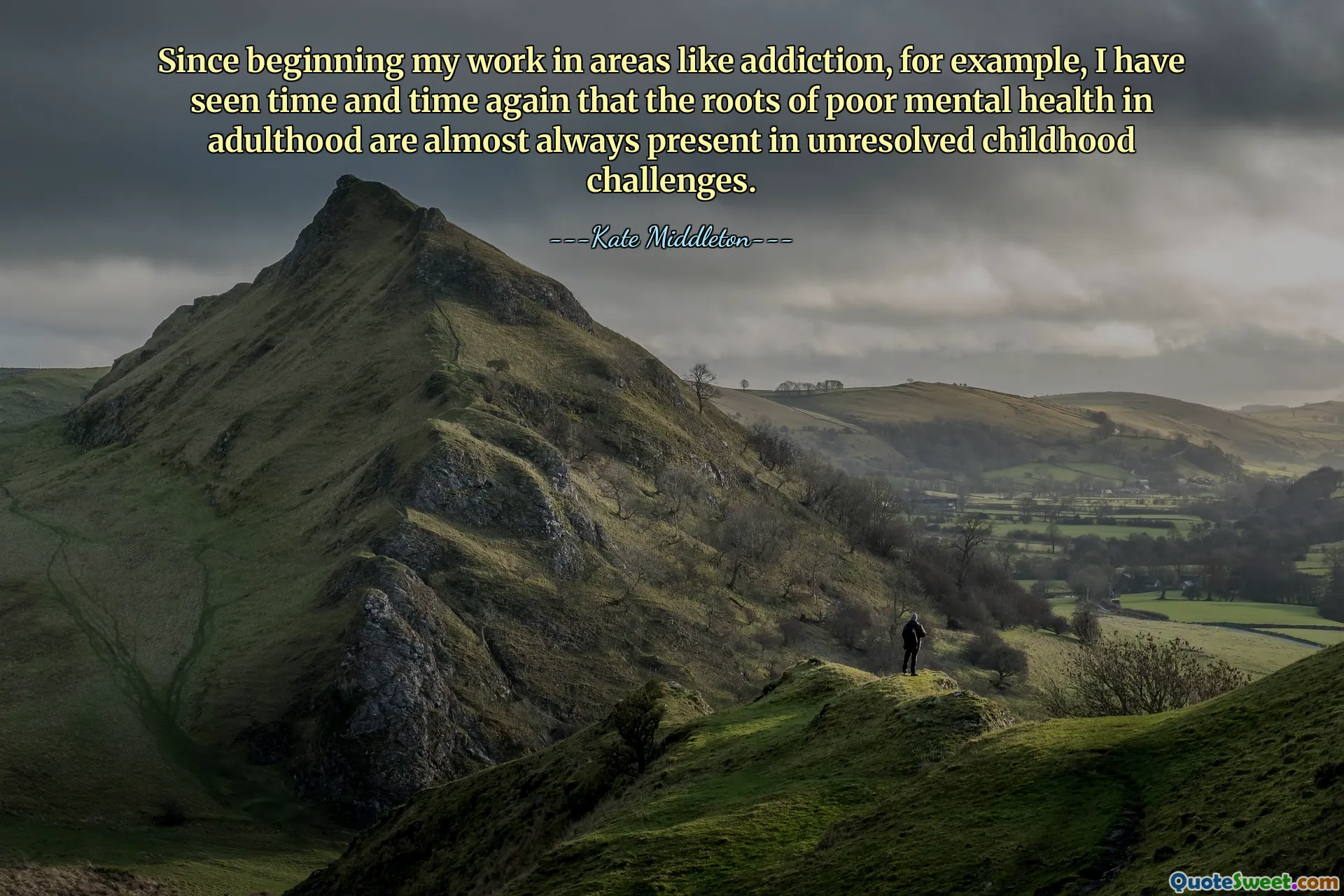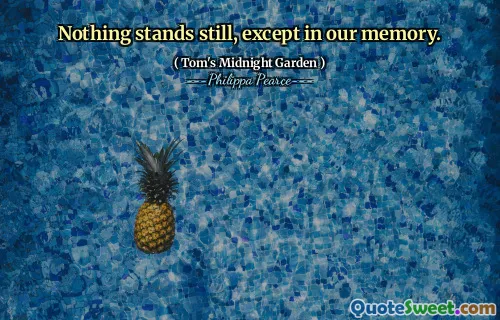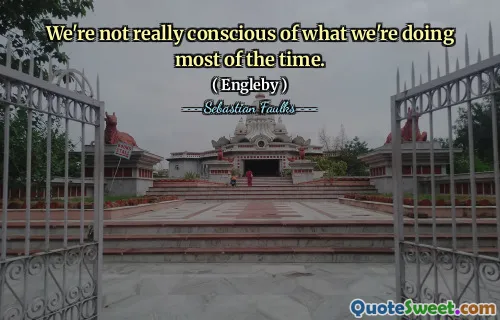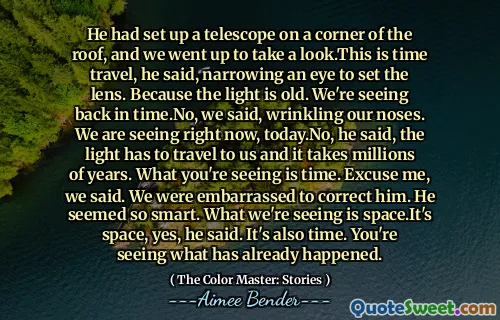
Since beginning my work in areas like addiction, for example, I have seen time and time again that the roots of poor mental health in adulthood are almost always present in unresolved childhood challenges.
This quote highlights a fundamental truth about human development and mental health: the experiences and challenges faced during childhood often have a profound impact on adult well-being. It underscores the importance of early intervention and the need to address issues from childhood rather than just focusing on symptoms in adulthood. When unresolved childhood traumas or emotional struggles persist into later life, they can manifest as addiction, anxiety, depression, or other mental health issues. Understanding this connection emphasizes the significance of a holistic approach to mental health—where therapy, counseling, and social support systems prioritize healing past wounds. Additionally, it invites a societal reflection on the environment children grow up in, encouraging stakeholders to invest in nurturing and supportive settings that promote resilience and emotional regulation. Recognizing the continuity from childhood experiences to adult mental health not only fosters empathy but also shifts the perspective towards prevention and early intervention, potentially alleviating much of the suffering that emerges in adulthood. Moreover, it helps remove the stigma associated with mental health struggles, framing them instead as outcomes of past unresolved challenges that can be addressed and healed. In essence, this quote advocates for a deeper understanding of human growth and the importance of nurturing positive, supportive early life experiences to foster healthier adulthood.











